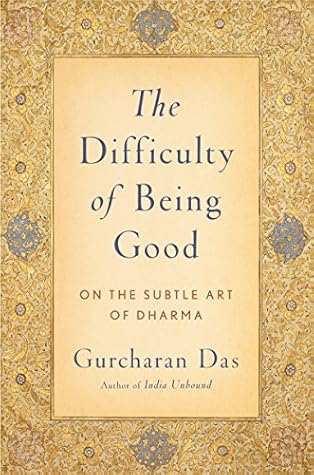More on this book
Community
Kindle Notes & Highlights
While forgiveness suggests a degree of ‘self-righteousness’, forbearance points one in the direction of the classical virtue of magnanimity. The magnanimous person is forward-looking and does not suffer from the ‘victimization’ complex of the forgiving person.
‘Indeed, if strict justice is viewed as a precondition for peace, then the quest for national unity and peace may be doomed to failure.’
Like most people, I failed to choose and allowed myself to be swept along in a direction that others decided. For the rest of my life I have had to deal with the consequences of those decisions.
‘Remorse comes when you are able to feel the suffering of fellow human beings to an extent where the suffering becomes your own. To feel deeply human suffering you have to internally accept that all humans are equal and see them as humans and not as a particular group. Once you make this leap, democracy is the only system you can believe in.
When the epic’s characters make free choices, they become responsible for their decisions. At the moment of making a decision they become conscious of their freedom, and it is this perception of autonomy that gives them the ability to lead authentic moral lives.
‘let the lie come into the world, even dominate the world, but not through me’.
would be more inclined to feel compassion towards the other person’s suffering if I realized that I am equally vulnerable and the suffering could be mine.
One usually thinks of the latter in a context when one is a victim or when one does not want to be hurt. But it might also help explain benevolent behaviour. When one puts oneself in the shoes of another person, even in a hypothetical situation, it forces one to acknowledge the reality of others. Exchanging
It is irrational not to help others knowing that one may need their help one day.
Yudhishthira yearns for an ‘even’, predictable world in which the good are rewarded and the bad are punished. But in a world where the rules of the game are determined by a loaded game of dice, enigma and opacity are man’s destiny.
This is the epic’s way of reminding us that human lives are vulnerable—there is much in this world that we do not control. The Mahabharata calls this uncontrollable sphere daiva, ‘fate’. Yudhishthira recognizes his vulnerability, but being the sort of person he is, he also realizes that his defencelessness is the same as that of the next person. From this thought empathy is born.
I have learned that the Mahabharata is about the way we deceive ourselves, how we are false to others, how we oppress fellow human beings, and how deeply unjust we are in our day-to-day lives.
dharma. It takes moral courage to resist the sentiment of partiality towards one’s family. Yudhishthira, as we have seen, challenges the old sva-dharma of family and caste in the epic, preferring instead the newer, universal sadharana-dharma, which teaches one to behave with impartiality towards everyone.
There is a fine line between healthy ambition and selfish greed, but it is very real.
The Mahabharata’s position is quite clear—human initiative does matter even though there is much beyond one’s control.
Goodness entails actively helping those in need as well as passively not harming others and being fair and just in one’s judgements.
When dharmic goodness and ideology become the driving force of politics then room for negotiation and compromise is significantly diminished and this makes for a dangerous world.
‘a man who wishes to profess goodness at all times will come to ruin among so many who are not so good. Hence it is necessary for a prince who wishes to maintain his position to learn how not to be good, and to use this knowledge . . . according to necessity.’
envy is a sin of socialism, greed is the failing of capitalism
‘We are citizens who have a feeling for justice in public affairs, only because we have faction-ridden souls, ambivalent desires and the experience of contrary impulses . . . and we are persons who are normally in dispute with ourselves.’
Religion, of course, does not create moral ideas, but as Plato explained in the Euthyphro, it gives authority to moral rules that are already present.
No one answers Draupadi’s question in the assembly and Yudhishthira is still looking for dharma at the epic’s end. Draupadi herself remains unconvinced by everything that Yudhishthira had said about why we must be good. Good behaviour is not rewarded generously in the epic; the virtuous suffer banishment and deprivation, while the wicked flourish in their palaces. Nor does the epic seem to explain why ‘good’ persons, who had a strong and persuasive case to make war, could win only by unfair means? And if so, how can we still call them ‘good’? It has told us that dharma is hidden in a cave, but
...more
Yudhishthira has an abiding sense of the tragic. While striving for rationality, he senses the underlying irrationality of human existence.


